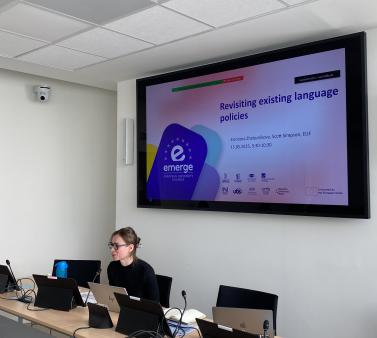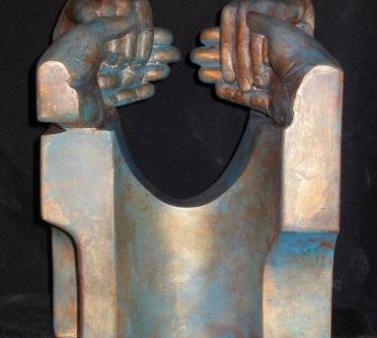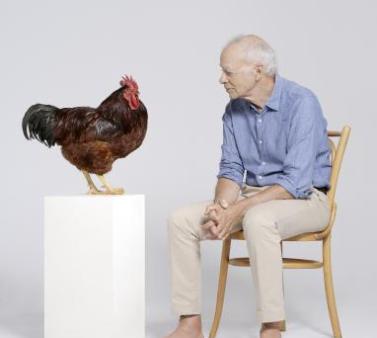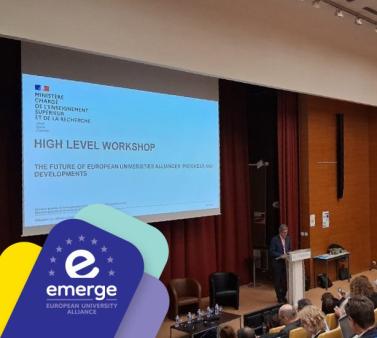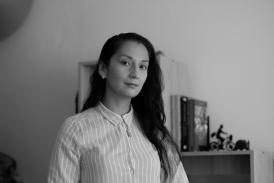
Aura Reyes is co-leader of the research group of Anthropology and History of Anthropology in Latin America (UNAL-UdeA) and is a member of the working group of Anthropology of Anthropology in Latin America (Asociación Latinoamericana de Antropología) and the BEROSE project, International Encyclopedia of the Histories of Anthropology. Her research interests include cultural heritage and repatriation processes, provenance studies, the history of anthropology, museum studies, and curatorial practices. She recently contributed to the book Resist, Reclaim, Retrieve. The Long History on the Struggle for the Restitution of Cultural Heritage and Ancestral Remains Taken under Colonial Conditions (2025).
Was this your first visit to our university? If not, what motivated you to return?
Yes, this was my first time visiting Rennes 2 University. I have a strong connection with French academia through my involvement in the IRN-HITAL (CNRS) project. This collaboration has encouraged me to expand my academic networks and explore research initiatives focused on the Americas within various French institutions. I was particularly drawn to the Chair of the Americas program, which brings together specialists from different countries and disciplines. My participation aimed to foster academic exchanges with colleagues, engage with ongoing projects, and interact with students specializing in American studies.
What was the main purpose of your visit?
During my stay, I delivered several lectures as part of the Master 1 / Les Amériques and LLCR programs. I also collaborated with the ECsMAS research group within ERIMIT, particularly during the Journée d’étude internationale n°2 Musées et dynamiques mémorielles en Amérique du Sud.
My lectures and seminars addressed topics such as American archaeology, historical photographs in anthropological research, debates on cultural heritage, and the history of Colombian anthropology. Specifically, I contributed to the following sessions:
Histoire préhispanique et colonial: "Amazonian Pre-Hispanic Societies"; Patrimoine: "The Invention of the Archaeological Park of San Agustin: A Patrimonial Chimera"; Séminaire de méthodologie en sciences sociales: "Trajectories and Methodologies: The Anthropological Photography of the Sierra Nevada de Santa Marta"; and "The Emergence of Modern Anthropology in Colombia in the First Half of the 20th Century: Expeditions, Commissions, and National Policies"
Were you invited by a particular department or professor? How did this collaboration come about?
I first connected with Rennes 2 University in 2022 through my participation in the conference Usages et abus des objets préhispaniques: discours, pratiques de collection et réseaux de connaissances entre l'Europe et l'Amérique latine (19e-20e siècles), organized by ERIMIT/ IDA-RENNES. This event allowed me to meet Professor Andrés Castro Roldán, Director of the Americas Chair program. Our discussions led to an academic exchange focusing on cultural heritage, the history of collecting American archaeological artifacts, and related themes.
Can you tell us more about your main research interests?
My research explores the history of anthropology from a transatlantic perspective, Latin American anthropologies from an "own anthropology" approach, postcolonial heritage debates, and restitution/repatriation processes of cultural property.
During my lectures at Rennes 2, I examined indigenous self-determination and its impact on restitution claims for cultural artifacts in European museums. I also explored how postcolonial debates shape restitution policies within the broader context of ethnic rights, heritage management, and the redefinition of cultural property. Additionally, I discussed the role of cultural heritage in national discourses and policies in the Americas.
Do you see potential for future collaborative research projects with our university?
Collaboration between scholars from American and French universities is key for fostering academic dialogue and strengthening research networks. The topics currently studied by ECsMAS align with my research within Colombian and Latin American institutions, as well as with European projects such as BEROSE and IRN-HITAL.
I look forward to developing joint projects and exchange programs to create meaningful discussions on shared research interests. Future collaborations could take the form of workshops, conferences, publications, and student or faculty exchanges.
How would you describe your overall experience at Rennes 2 University and in the city?
My experience was both professionally and personally enriching. Engaging with undergraduate and graduate students allowed for dynamic discussions on American realities from various research perspectives. Conversations with colleagues from the Institute of the Americas were also very stimulating, given their extensive research on American history and anthropology within a global and transatlantic framework.
Additionally, participating in the Lecture Series of the Americas provided valuable opportunities to connect with scholars from Argentina and Peru. This exchange broadened our perspectives on American studies, highlighting both convergences and divergences across regional and disciplinary contexts.
It was also my first time in Rennes, and I greatly appreciated the support from the university's administrative and academic staff. Their guidance throughout the application and administrative processes made my stay smooth and enjoyable. Rennes, with its vibrant student community, offers a welcoming environment for academic and cultural engagement. Colleagues generously shared information on university and city events, making my four-week stay an intense period of learning and exchange.
How can we further strengthen academic ties between our institutions?
Disseminating information about research programs and initiatives is essential for fostering institutional collaboration. Both the University of Antioquia and Rennes 2 have long-standing academic traditions and diverse research projects that could serve as foundations for future partnerships. By identifying areas of common interest in teaching, research, and outreach, we can develop exchange programs that enrich both institutions. Strengthening these academic ties will enable deeper cross-cultural engagement and facilitate joint research opportunities in the years to come.
